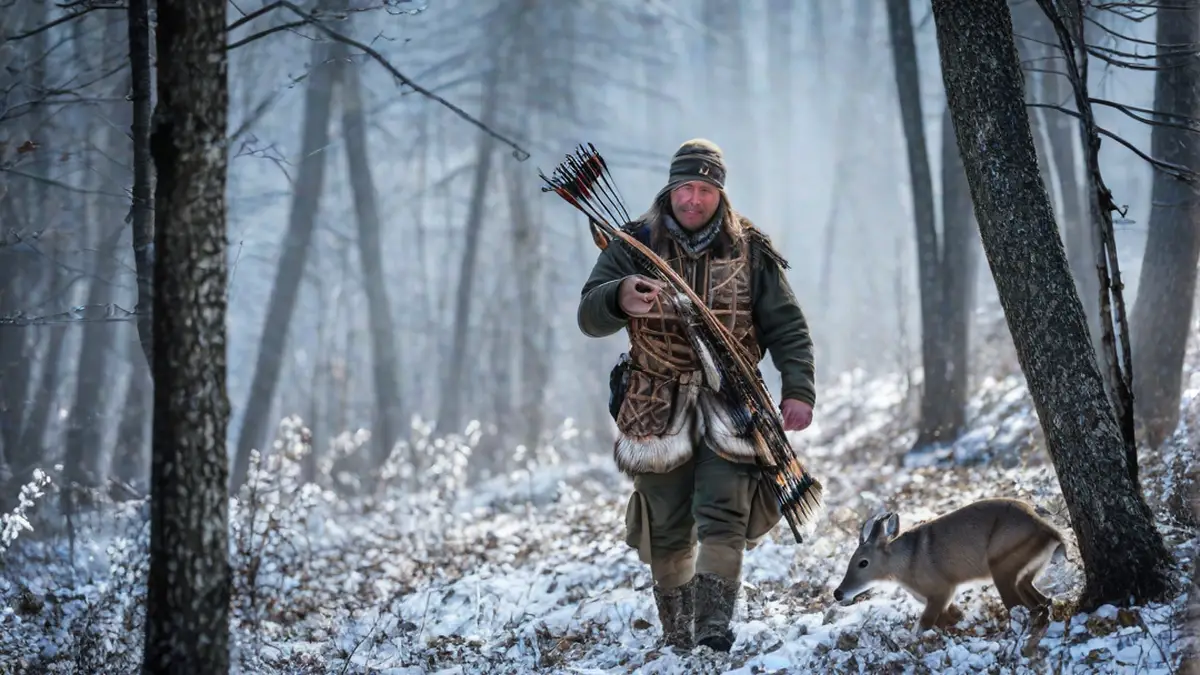As a passionate hunter, I often find myself reflecting on the ethics of the sport. One question that frequently arises is whether bow hunting can be considered humane. With its ancient origins and reliance on skill and precision, bow hunting has garnered both praise and criticism over the years. In this article, I aim to explore the various arguments surrounding this controversial topic and provide my own insights.
The Art of Bow Hunting
Bow hunting is an ancient practice that dates back thousands of years. It requires a deep understanding of the environment, animals, and the mechanics of archery. Unlike using firearms, bow hunting demands exceptional skill and precision from the hunter. It involves getting closer to the animal, usually within a range of 20-30 yards, which requires a high level of stealth and patience.
One of the main arguments in favor of bow hunting being humane is the inherent challenge it presents. Bow hunters must spend countless hours honing their skills and understanding the behaviors of their prey. This dedication ensures that the hunter can deliver accurate and lethal shots that minimize suffering.
Ethical Considerations
When discussing the ethics of bow hunting, it is essential to address the issue of animal suffering. Critics argue that using a bow and arrow may not always result in a quick and clean kill, potentially prolonging an animal’s suffering. While it is true that bow hunting requires precise shot placement to ensure a swift kill, it is also important to remember that no hunting method is foolproof. Even with firearms, there is always a risk of injuring an animal rather than killing it outright.
As a responsible bow hunter, I firmly believe in the importance of ethical hunting practices. This includes taking the necessary precautions to ensure a humane kill. This means practicing regularly to maintain accuracy, using appropriate equipment, and understanding the anatomy of the animals being hunted.
Affirming the Humane Aspect
It is worth noting that bow hunting has its advantages when it comes to animal welfare. The sport requires hunters to be intimately familiar with their target species and their habitats. This knowledge helps hunters choose their shots carefully, aiming for vital organs to ensure a swift and humane kill. Additionally, bow hunting encourages a deeper connection to nature and a sense of respect for the animals being pursued.
Furthermore, bow hunting often takes place during specific seasons, when animals are at their prime and can withstand the physical demands imposed by hunting. This time of year coincides with the natural cycle of population control, allowing hunters to target animals that might otherwise face challenges due to overpopulation.
My Personal Take
As an avid bow hunter, I take both the ethical and humane aspects of hunting seriously. I strive to ensure that my hunting practices align with my values and respect for the animals I pursue. This means continuously refining my skills, investing in high-quality equipment, and adhering to the regulations and guidelines set forth by hunting organizations and wildlife management authorities.
Ultimately, the question of whether bow hunting is humane is subjective and open to interpretation. However, with a commitment to responsible hunting practices, a deep understanding of animal anatomy, and a focus on precision, bow hunting can be a humane and ethical endeavor.
Conclusion
Bow hunting, like any form of hunting, has its ethical considerations. While critics may argue that it is not always a humane practice, responsible bow hunters prioritize precision and accuracy, ensuring a swift and humane kill. As an ethical bow hunter, I believe that it is vital to respect the animals we hunt, embrace sustainable hunting practices, and continually educate ourselves to minimize suffering and promote conservation. By doing so, we can find a balance between our love for the sport and our commitment to ethical hunting.
